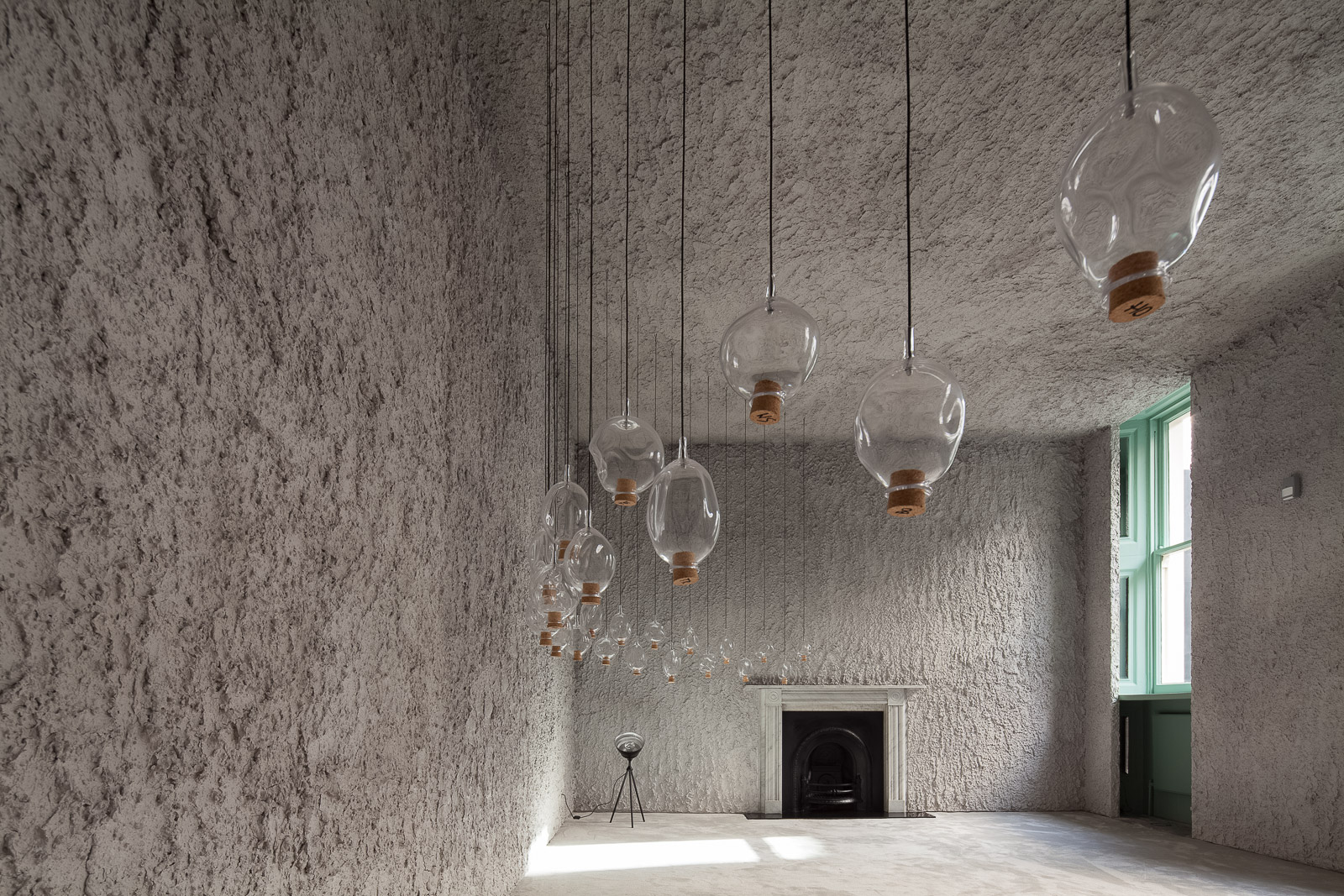
Interpretation
Antonino Cardillo
Has it been observed to what extent outward idleness, or semi-idleness, is necessary to a real religious life, […] I mean the idleness with a good conscience, the idleness of olden times and of blood, to which the aristocratic sentiment that work is diskonouring—that it vulgarises body and soul—is not quite unfamiliar? And that consequently the modern, noisy, time-engrossing, conceited, foolishly proud laboriousness educates and prepares for ‘unbelief’ more than anything else? — Friedrich Nietzsche
Behind a portal on a Georgian street in London, lives a small grey grotto. Its rugged walls, imprinted with gestures of the mason’s trowel reveal the eroticism which was conveyed in the act of construction by the ancients. The pozzolanic ash echoes the volcanic topography from where it was quarried. As ‘chambers of light’ the three tall openings facing the street orchestrate the light and shadow. Onto a rough wall: the backdrop for a sweeping semi-circle of thirty-seven irregular glass forms each suspended by a black thread. Enclosed are colours. Invisible colours revealed only by the nose.
Reference
- Friedrich Nietzsche, Jenseits von Gut und Böse: Vorspiel einer Philosophie der Zukunft,[↗] Druckerei CG Naumann, Leipzig, 1886; En. ed. Helen Zimmern, Beyond Good and Evil: Prelude to a Philosophy of the Future, T.N. Foulis, Edinburgh, 1907, p. 75.
Data
- Time: Feb 2014–March 2015 (design), March–April 2015 (construction), April 2015 (photography), 2017 (demolished)
- Place: Illuminum Fragrance, 41 Dover St, Mayfair, London, UK
- Area: 27 m² (one storey)
- Typology: shop
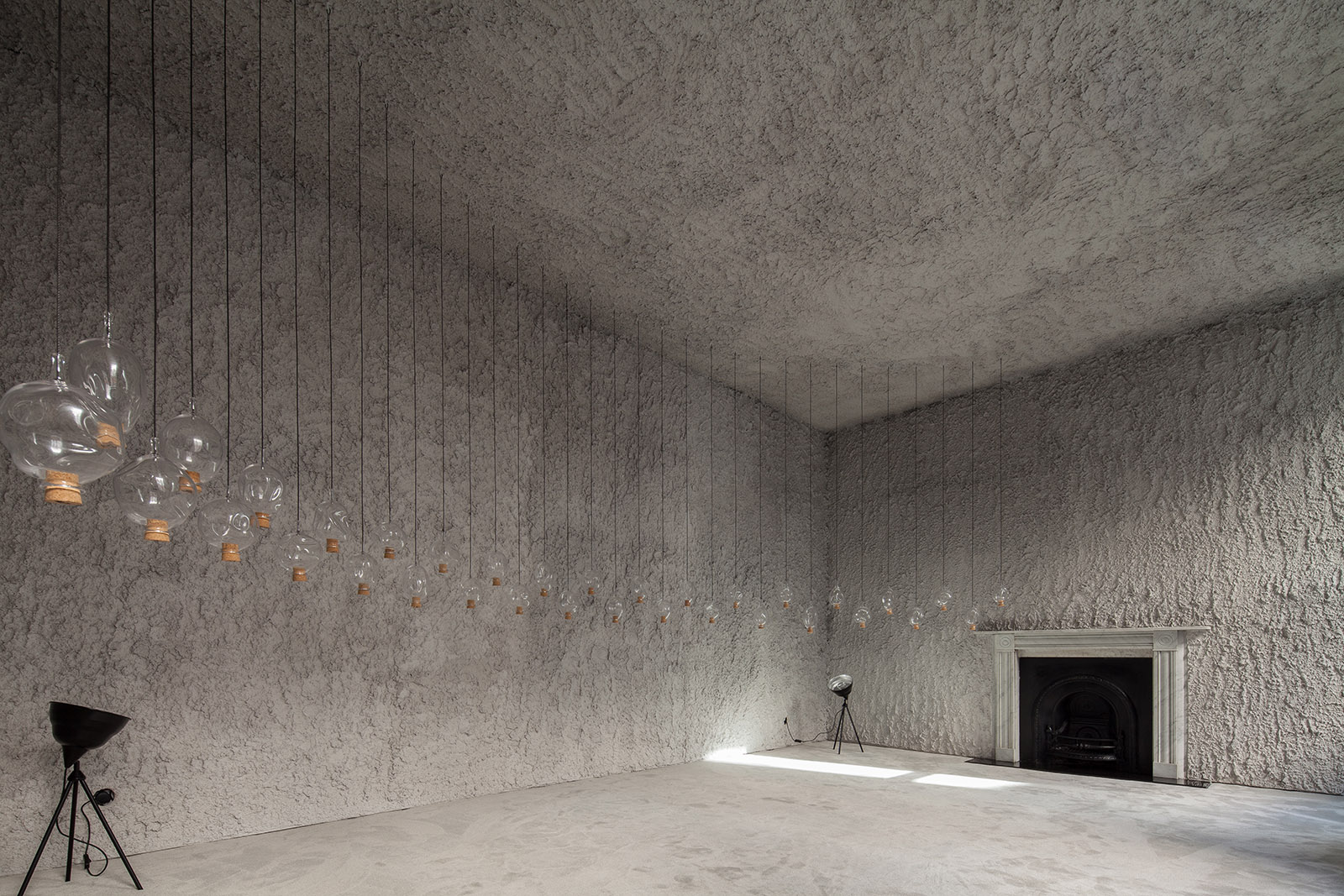
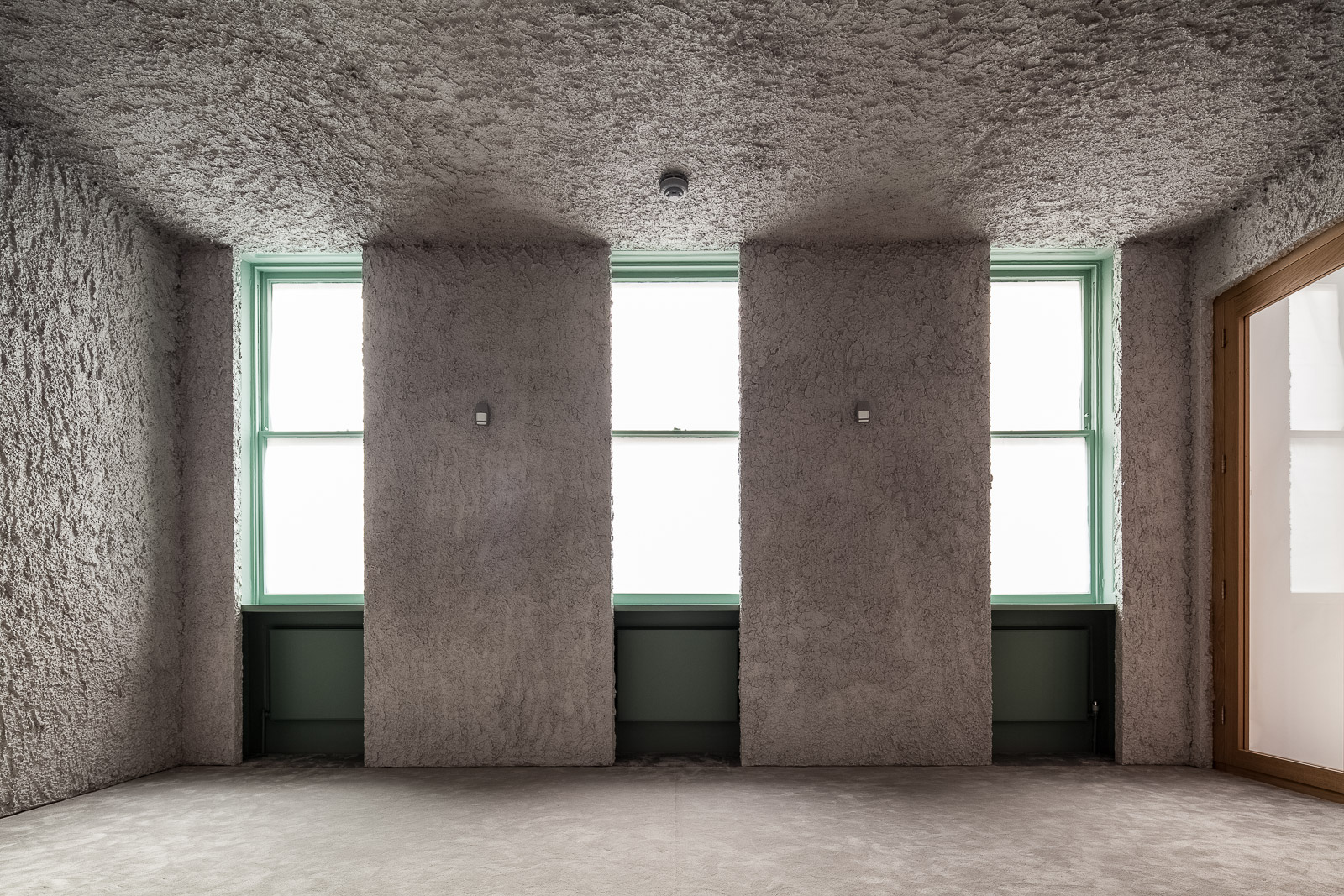
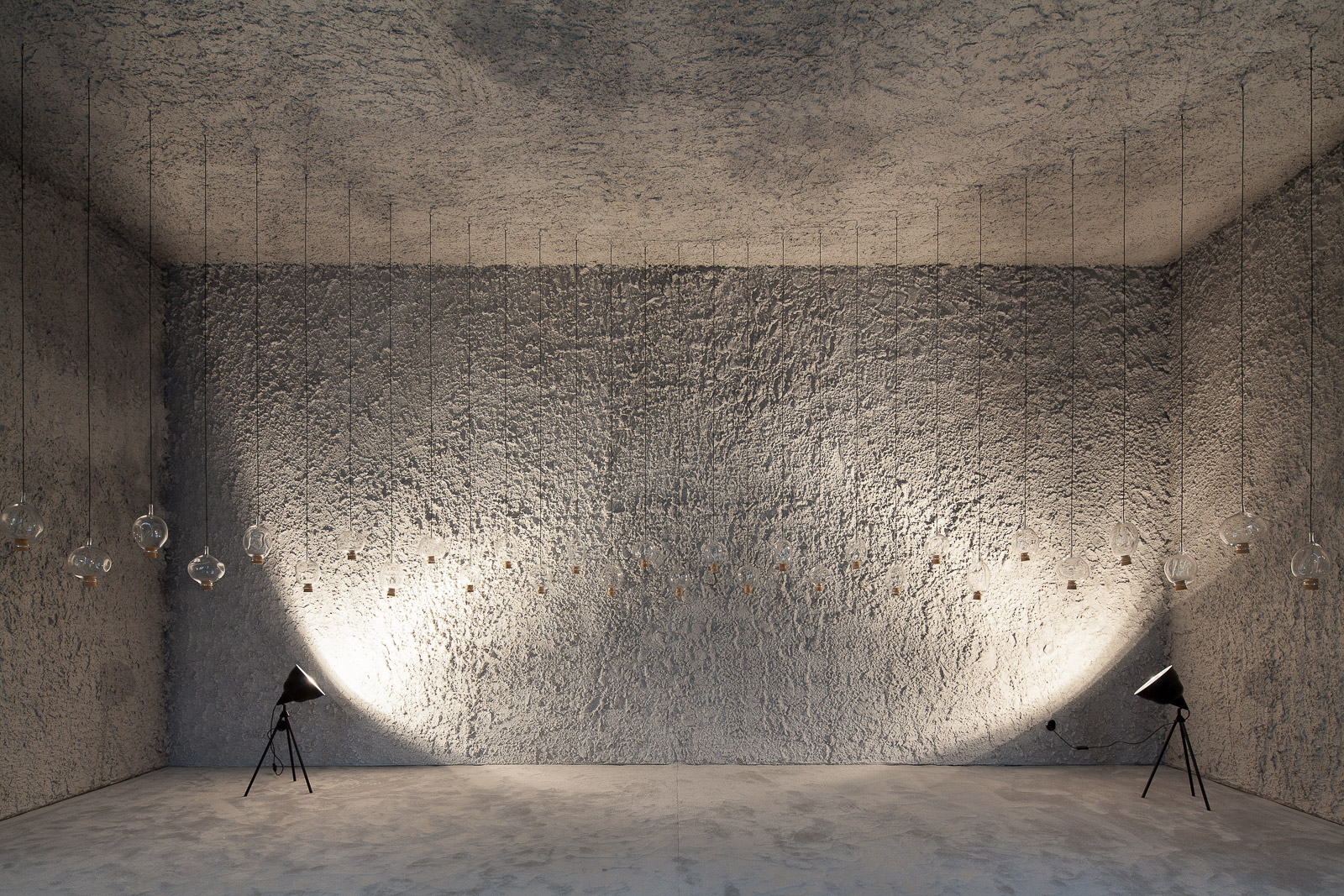
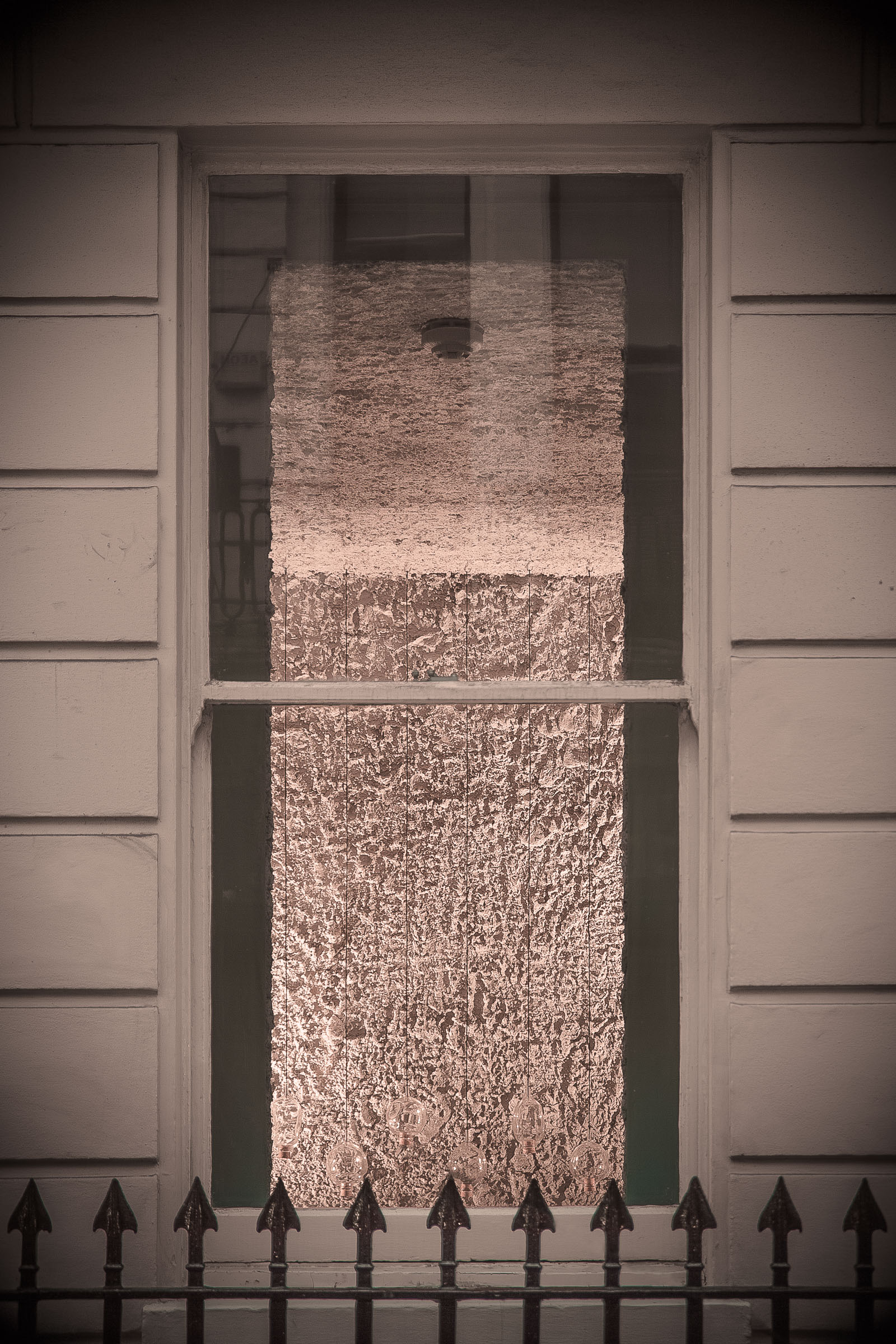
Credits
- Architecture, construction management: Antonino Cardillo
- Olfactory glasses concept: Asakala Geraghty
- Client: Illuminum Fragrance (director: Keith Hamilton; art director: Asakala Geraghty)
- Construction company: Italian Art Design Ltd.
- Masonry: Adrian Paiunui Mihai, Fabio Di Monte, Gianmarco Di Monte
- Carpet: Natural Elements Flooring
- Glass making: Elliot Walker
- Photography, text: Antonino Cardillo
- Translation: Antonino Cardillo, Morgan Ferrar, Asakala Geraghty
- Thanks to Suzanne Trocmé